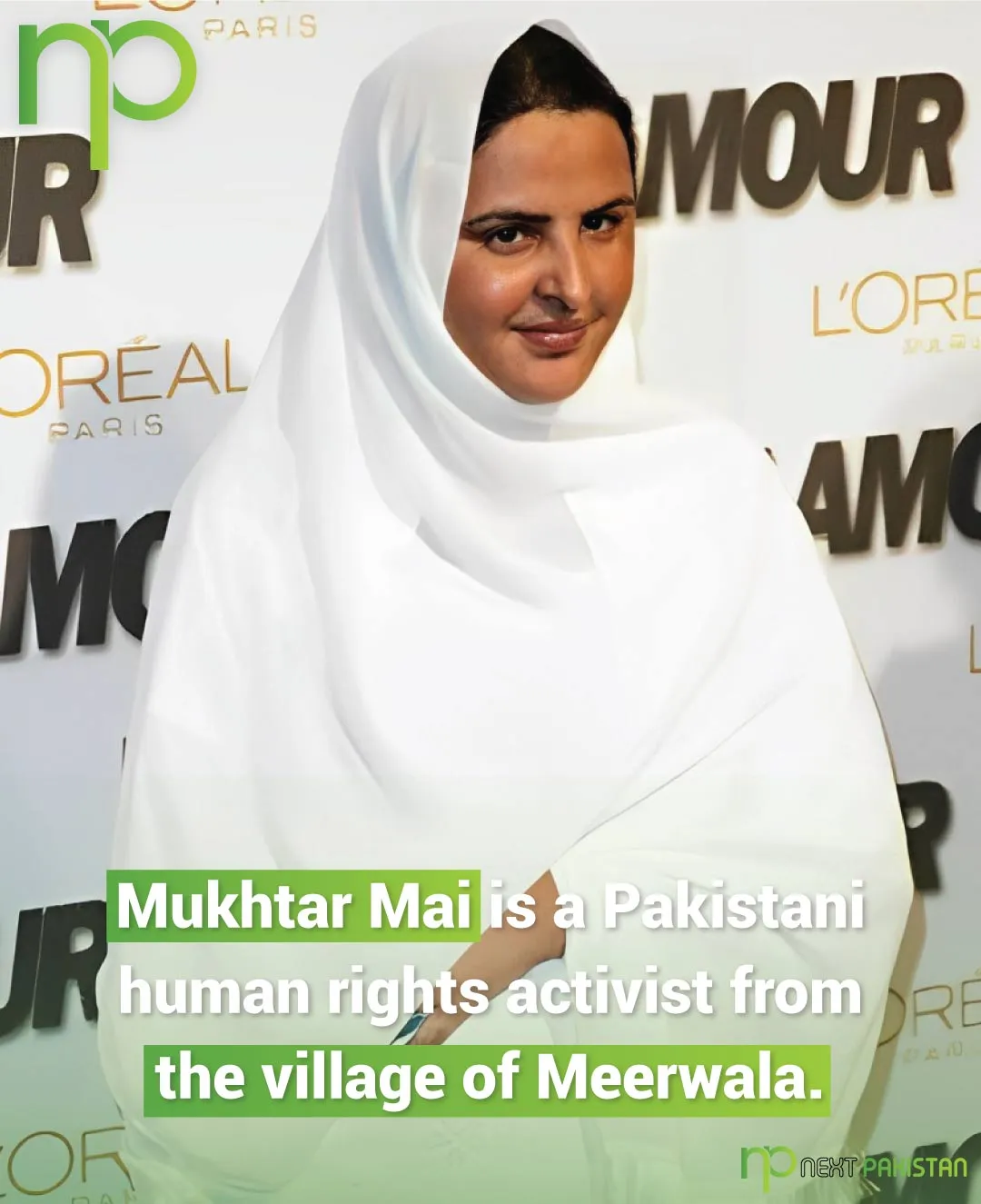
- March 1, 2024
- ubaidah khan
- 0
Mukhtar Mai, also known as Mukhtar Bibi, is a Pakistani women’s rights activist from the village of Meerwala in Punjab province. In 2002, she gained international attention when she spoke out about her gang rape, which was ordered by a local tribal council as a form of punishment for an alleged crime committed by her younger brother. Rather than succumb to societal expectations of shame, Mukhtar Mai took a courageous stance, seeking justice through legal channels. Her case received widespread attention, sparking debates about gender-based violence and women’s rights in Pakistan. Despite facing numerous challenges, Mukhtar Mai has continued to advocate for women’s rights, education, and social justice in her country.
Introduction:
Mukhtaran Mai, born around 1972, is a Pakistani human rights activist hailing from the village of Meerwala in the Muzaffargarh District of Punjab. Her life took a tumultuous turn in June 2002 when she became the victim of a gang-rape sanctioned by a tribal council, sparking a landmark case that garnered global attention.
Rape Incident and Legal Battle:
Mai’s younger brother, Abdul Shakoor Tatla, was abducted and subjected to a brutal gang rape. Subsequently, a tribal council ruled that Shakoor should marry the sister of one of his rapists. When villagers rejected this, Mai was called to apologize, leading to her own gang rape by four men. The incident gained widespread media coverage, bringing the case to both national and international attention.
Government Reactions and Challenges:
The Government of Pakistan awarded Mukhtaran a compensation of 500,000 rupees. However, her life took a difficult turn when, in 2005, she was placed on Pakistan’s Exit Control List just before a scheduled trip to London, allegedly to prevent a negative image of Pakistan. Despite facing threats and challenges, Mukhtaran continued her fight for justice.
Legal Proceedings and Acquittals:
The legal battle saw an initial success with an anti-terrorism court sentencing six men to death. However, the Lahore High Court later acquitted five of them in 2005, citing “insufficient evidence.” Despite appeals, the Supreme Court of Pakistan eventually acquitted all accused in 2011, leading to disappointment and renewed threats to Mukhtaran’s safety.
Post-Case Advocacy and Achievements:
Undeterred, Mukhtaran turned her trauma into a catalyst for change. She founded the Mukhtar Mai Women’s Welfare Organization, focusing on education and support for women in rural Pakistan. Despite facing obstacles and threats, her resilience earned her accolades, including the Fatima Jinnah gold medal for bravery, Glamour magazine’s Woman of the Year, and the North–South Prize from the Council of Europe.
Global Impact and Recognition:
Mukhtaran’s story resonated internationally, leading to awards, including an honorary doctorate from Laurentian University of Canada. Her memoir, published in multiple languages, gained widespread acclaim, and her advocacy became a subject of documentaries and operas.
Ongoing Struggles and Triumphs:
While her legal battles continue, Mukhtaran remains committed to her mission. Despite living under constant threat, she persists in advocating for women’s rights, education, and justice in Pakistan and beyond.
Conclusion:
Mukhtaran Mai’s journey exemplifies resilience in the face of adversity. From being a survivor of a heinous crime to becoming a global advocate, her story continues to inspire and shed light on the challenges faced by women in conservative societies.